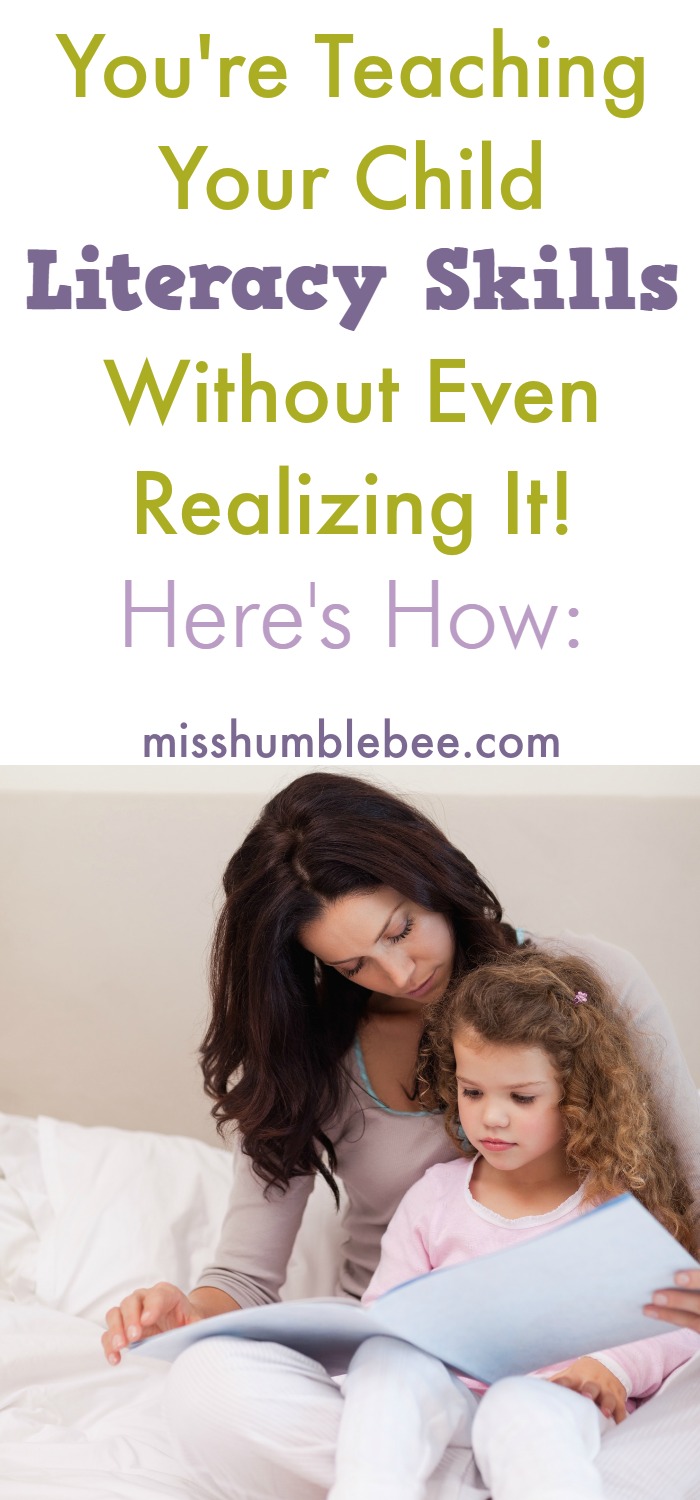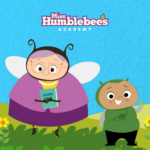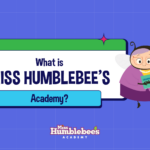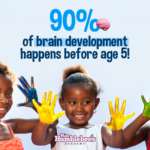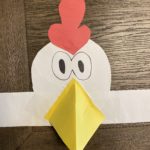You’re behind at work, your to-do list is a mile long, and you forgot to turn on the crock pot (full of tonight’s dinner) before you left the house.
In a spare minute while waiting in line at the grocery store, you scroll through Facebook and see an article about how ill-prepared children are to enter school. After skimming through it, you mentally add a few more things to your to-do list: Teach alphabet to child, teach child how to read, figure out a way to add five hours to the day.
You’re Teaching Your Child Literacy Skills Without Even Realizing It!
These days there’s a lot of pressure on parents and children to have a solid knowledge base before entering kindergarten. Kids who don’t go to PreK are automatically at a disadvantage and the kindergarten curriculum is more rigorous than ever.
Sometimes though, parents simply don’t have the necessary time or resources to sit down with their children to prepare them for what’s ahead. Miss Humblebee’s Academy is a fantastic solution to the problem, but for those parents who feel as though they should actively be doing more, we have good news.
You probably already are, without even realizing it!
Last week we discussed the ways you teach math to your children without realizing it. This week we’ll discuss everyday activities that naturally teach literacy skills.
Early literacy skills are so important in a child’s development because they lay the framework for future success. Reading and writing skills are necessary across all subject areas, so having a strong foundation on which to build will help your child be well-prepared to enter school.
So what are you already doing to build your child’s early literacy skills?
Talking to your child
Oral language is an important part of literacy:
- It expands vocabulary
- It teaches phonological awareness (the ability to hear the individual sounds that make up words)
- It improves narrative skills- every child loves to tell stories!
Be sure to talk early and often with your child:
- Name everyday objects
- Have conversations
- Take turns telling parts of a story
- Although ‘baby talk’ is tempting when you have an infant, try to remember to use correct pronunciations whenever possible to aid with receptive language and phonological awareness.
Singing with your child
Singing (let’s throw nursery rhymes in here too!) is a fantastic way to improve your child’s literacy skills. It shares and expands on all of the benefits of talking to your child:
- Vocabulary
- many songs/rhymes include words that you might not use in normal conversation (curds and whey come to mind)
- Phonological awareness
- songs often make hearing individual letter sounds easier because each syllable uses a different musical note
- songs/rhymes use rhyming words which increases awareness of ending sounds
- Improves narrative skills
- songs/rhymes are usually narrative in nature
Reading with your child
You can even take a step back with this one: Simply having books available to your child is an important way to improve literacy skills. Of course, reading with your child increases the benefits:
- Print awareness- This takes many forms including:
- Being aware of print and the fact that it has meaning
- Left-to-right progression (A slight rabbit trail- When I was in college, one of my professors told us that when her kids were babies, she would hold their rattle on their left side and then shake it from left to right to get their brains ‘thinking’ in that direction. Apparently we’re hardwired to think from right to left, so left-to-right progression is something we have to train ourselves to do.)
- Front-to-back progression
- The parts of a book- pages, spine, cover, etc.
- Oral language- Reading aloud to your child expands:
- Vocabulary
- Phonological Awareness
- Narrative Skills
- Letter Knowledge
- The more opportunities a child has to interact with print, the better he’ll be able to recognize and identify letters
- Once a child can identify letters, he can begin to learn letter sounds
Riding in the car with your child
That’s right, even a boring old car ride is full of opportunities to expand early literacy skills!
- Letter Knowledge
- Shape recognition- Since letters are made up of many different shapes, it’s important for a child to learn her shapes. Identifying the shapes of signs is an easy way to practice.
- Environmental print- Believe it or not, when your child points at the Golden Arches and screams, “McDonalds!”, it’s actually a good thing. Being aware of environmental print is an important pre-reading skill because it teaches that words and symbols have meaning.
- Letter recognition- Letters are everywhere when you’re in the car. Pointing out all the letters you see (you don’t even have to name them at first) and having your child do the same will help your child become familiar with letters.
- Letter identification- With time and practice, letter recognition will turn to letter identification. Choose one letter your child is familiar with and see who can spot it on a sign first.
- Oral language- This is the perfect opportunity to talk and sing with your child since you’re sharing a space and are ‘stuck’ together.
This is really just the tip of the iceberg when it comes to practicing early literacy skills with your child. Simply becoming aware of the skills we discussed above will help you discover an abundance of activities that involve these skills. Get your child involved with your everyday activities and you’ll be setting her up for academic success.
What other everyday activities have you found that help your child with early literacy skills? Tell us in the comments below or on our Facebook page.
